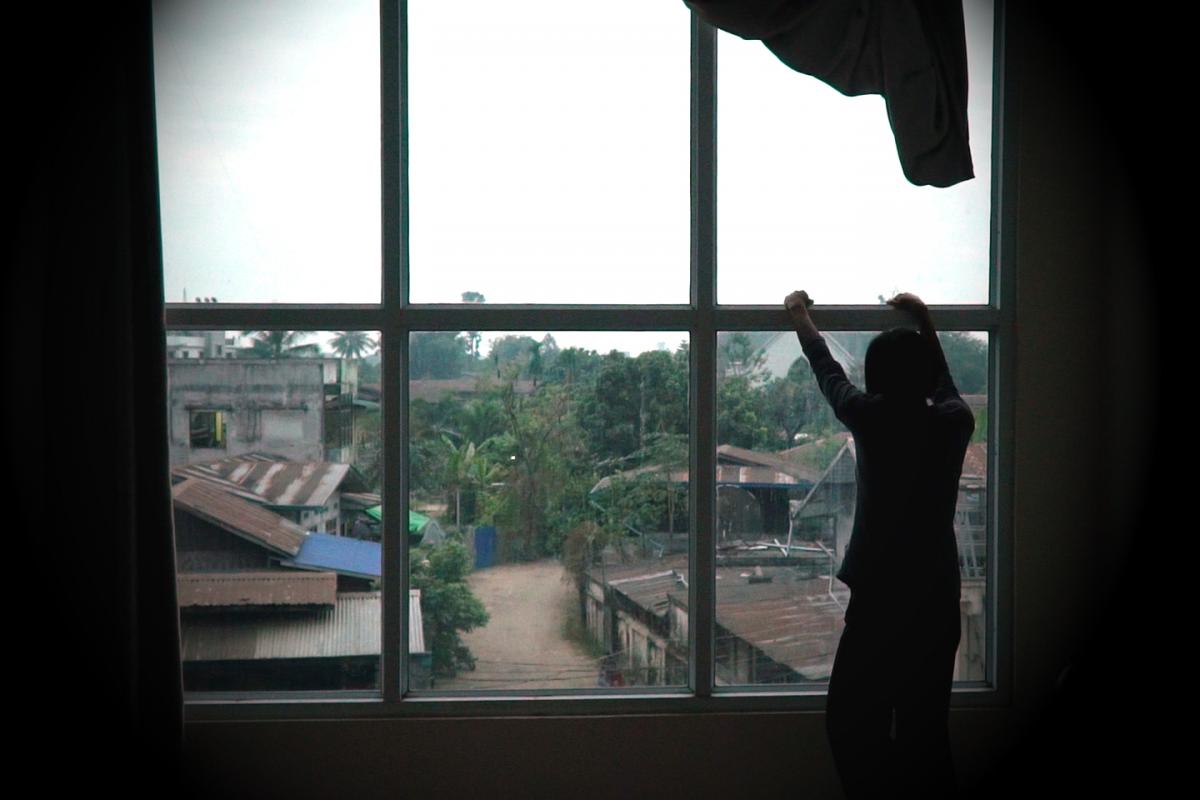
Kachin women and girls are being trafficked to China as ‘brides’ then beaten, locked in a room, and raped until they become pregnant, says a Human Rights Watch (HRW) report released today (March 21).
The 112-page report, “Give Us a Baby and We’ll Let You Go,” reveals traffickers preying on the internally displaced persons’ (IDP) camps of conflict-torn Kachin and northern Shan states, where they lure vulnerable young women with promises of jobs in China.
Instead they are sold for sums of US$3,000-13,000 and forced into marriage in China, where families struggle to find bridges for their sons because of the earlier “one child policy” and massive gender imbalance.
“Myanmar and Chinese authorities are looking away while unscrupulous traffickers are selling Kachin women and girls into captivity and unspeakable abuse,” said Heather Barr, acting women’s rights co-director at Human Rights Watch and author of the report.
The report is based primarily on interviews with 37 trafficking survivors, as well as three families of victims, Myanmar government officials and police, and members of local groups, among others.
Of the 36 survivors, 10 had given birth in China and 12 were taken when they were under 18. Eleven had been held captive for more than three years and one for nine years.
Some of the women were faced the cruel dilemma of being forced to leave their child behind if they wanted to return home to their families.
Amid the desperate conditions and abject poverty of the IDP camps, the survivors struggled to rebuild their lives while being judged by their neighbours who condemn sex outside marriage—despite the fact the women were taken against their will.
In one of six cases in the investigation where the women were deceived by relatives, a 16-year-old Kachin was promised by her sister-in-law a well-paid job in China to support their impoverished family.
“The family took me to a room. In that room I was tied up again. … They locked the door—for one or two months. When it was time for meals, they sent meals in. I was crying…Each time when the Chinese man brought me meals, he raped me,” she recounted.
She managed to escape with her son two years into her captivity.
Another girl who was drugged and trafficked at 14 with her cousin after they accepted work in a clothing store near the border paying 50,000 kyats ($38) per month described her journey to China.
“I don’t know how many days I had fainted or how long I was on the train. I saw only the Chinese letters. I could not read them. There were no Myanmar letters. I started crying,” she said.
A Shan-Chinese woman took the girls to a hotel and locked the door from the outside, warning them that if they tried to escape she would “cut off our hands and legs.”
Another survivor, 30, recalled being locked in a room for one year. “Before I had a baby, the family members—especially the mother-in-law—treated me badly. Sometimes they didn’t feed me, because I didn’t get pregnant as soon as possible.”
Bride trafficking has been enabled by renewed conflict between the Myanmar military and the Kachin Indepedence Army near the China border.
Over 100,000 displaced Kachin and other minorities are living in IDP camps because of a ceasefire breakdown in 2011.
Humanitarian aid to the camps has largely been blocked by government authorities, and women are often the sole breadwinners, with men taking part in the conflict.
One manager of a camp in rebel-held territory told HRW rations were given every 45 days; this amounted to two cups of rice per day and 7,500 kyats ($4.9) for the whole period.
“The dearth of livelihoods and basic rights protections have made these women easy prey for traffickers, who have little reason to fear law enforcement on either side of the border,” said Barr.
Meanwhile, in China, the “one-child policy” in place from 1979 to 2015, and the widespread practice of sex-selective abortion has led to an increasing gender gap among men and women aged 15 to 29.
Faced with 30 to 40 million “missing women” Chinese families are turning to desperate measures to find wives and produce heirs.
Trafficking is illegal in both countries and some efforts have been made to stop it. However, HRW found that families seeking help were often turned away by the police and women who escaped were sometimes jailed by the Chinese authorities for immigration violations.
“The Myanmar and Chinese governments, as well as the Kachin Independence Organisation, should be doing much more to prevent trafficking, recover and assist victims, and prosecute traffickers,” Barr said.
“Donors and international organisations should support the local groups that are doing the hard work that governments won’t to rescue trafficked women and girls and help them recover.”

